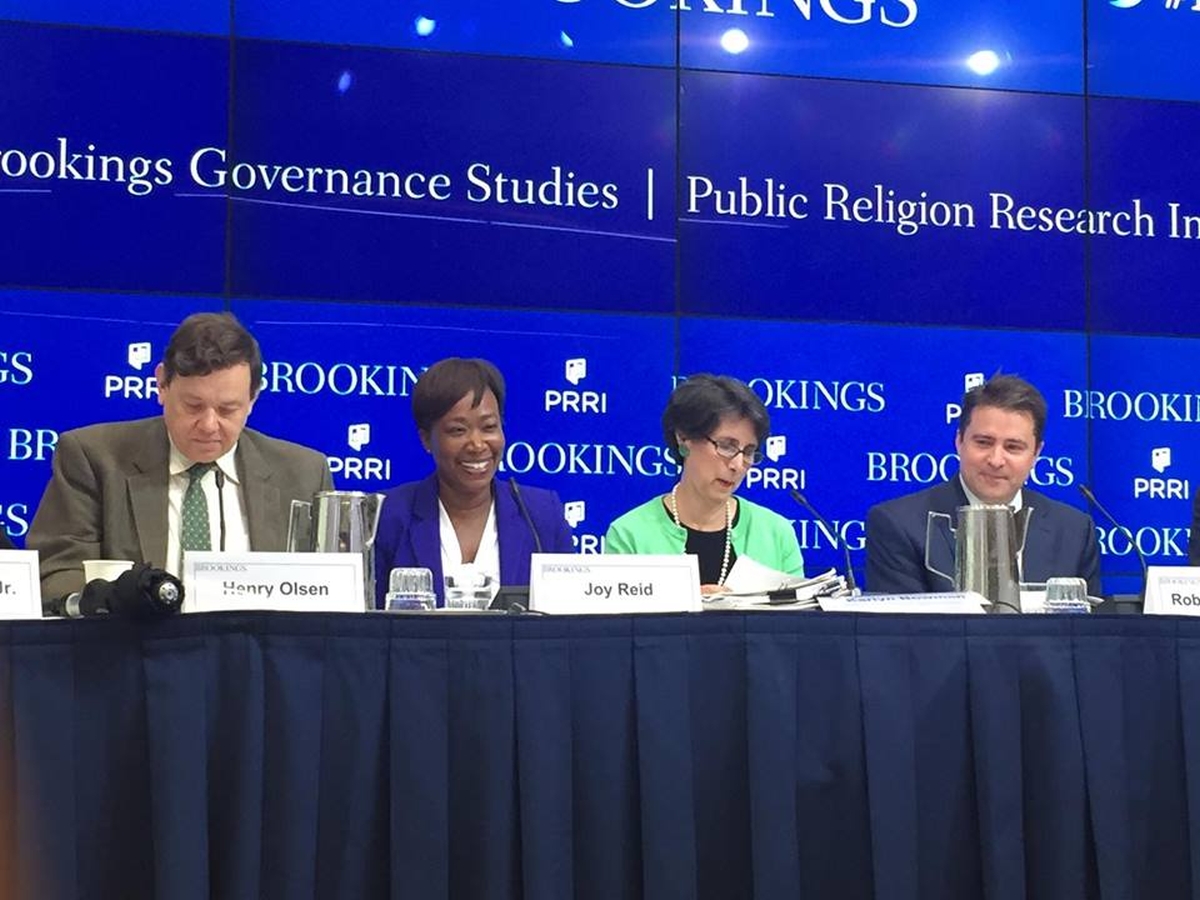More than half of all Americans are concerned about the threat of terrorist attacks, a substantial increase from two years ago, according to a survey released June 23 by the Public Religion Research Institute and the Brookings Institution. Concern has spiked 24 percent since Nov. 2014, when 33 percent registered worry over terrorism.
The survey of 2,607 U.S. adults was conducted April 4 to May 2, 2016, just one month before the mass shooting in Orlando, Florida. The survey found that terrorism causes more anxiety among Americans than violent crime and unemployment.
Henry Olsen, a senior fellow at the Ethics and Public Policy Center, mentioned a common concern for protection at a panel discussion on June 23 in Washington, D.C., on the findings of the report.
“There are people who feel that there are certain things they ought to be doing to ensure that they have a decent chance of dignity, comfort, and security. They don’t believe the government is doing these things,” Olsen said.
Michelle Mittelstadt, of the Migration Policy Institute, agreed, pointing to recent measures targeting refugees and Muslims as an extension of that concern.
“After the devastating attacks in Paris, Brussels, San Bernardino, and most recently Orlando, it is understandable that people are concerned about their safety and national security,” Mittelstadt said in an email interview.
“The issue is whether bans on refugee resettlement or the entry of Muslims address the problem, would be effective, could be implemented, and perhaps most importantly are consistent with deeply held and long-standing American values. These are important questions for the American public and their representatives in government.”
While fewer than half of Americans — less than 40 percent — endorse the idea of banning Muslims and Syrian refugees from entering the U.S. and erecting a wall along the U.S.-Mexico border, Republicans and Democrats have strikingly different opinions. Compared with Democrats’ overwhelming opposition, 77 percent of self-identified Trump supporters embrace a moratorium on immigration, 82 percent favor building a wall with Mexico, and 78 percent support denying Syrian refugees entrance to the U.S.
The partisan divide is also evident in opinions on immigration reform.
When asked how the immigration system should deal with unauthorized immigrants who are in the U.S., 72 percent of Democrats say they should be given a way to become citizens, while 49 percent of Republicans share that view. The gap is more pronounced between Trump supporters and supporters of presumptive Democratic nominee Hillary Clinton: While there is a nearly-even split among Trump supporters between those who embrace undocumented immigrants (45 percent) and those who favor a policy of deportation (41 percent), the majority (72 percent) of Clinton supporters stand by a policy that would provide undocumented immigrants a path to citizenship.
The panel remarks on June 23 coincided with a split Supreme Court ruling on President Barack Obama’s executive order to give more than 4 million undocumented immigrants the temporary relief from deportation, effectively blocking the order.
This story was published on Sojourners.

